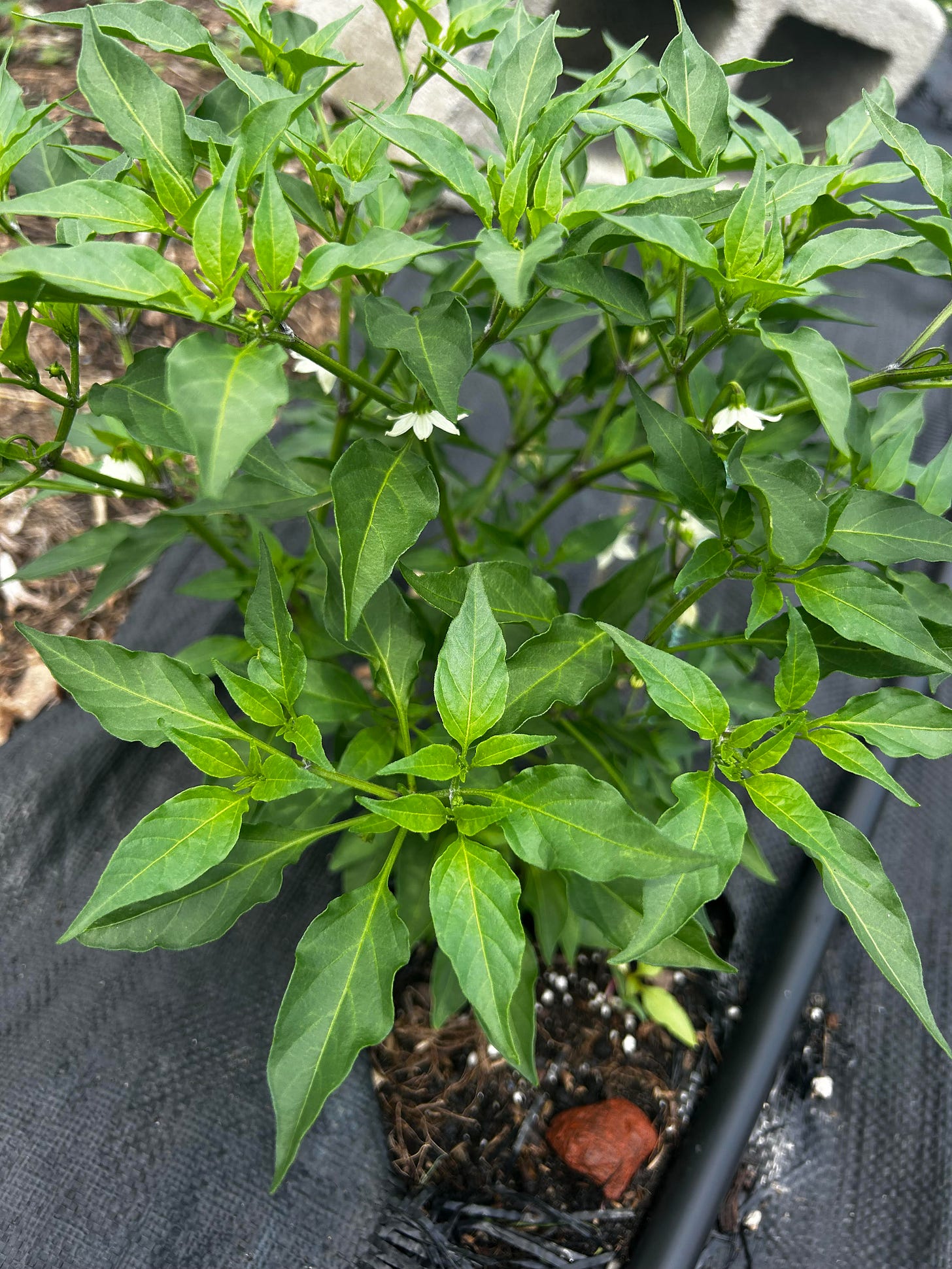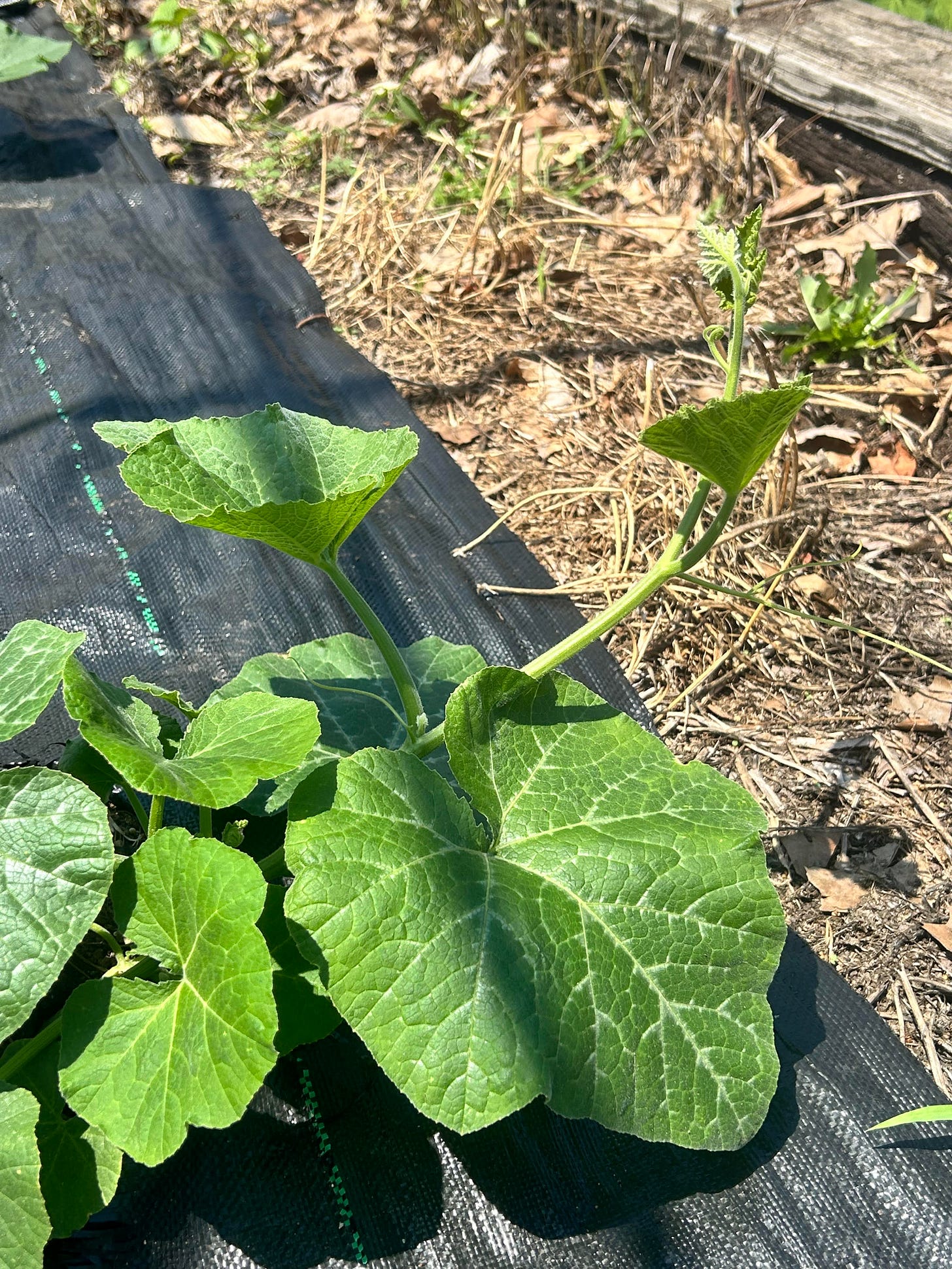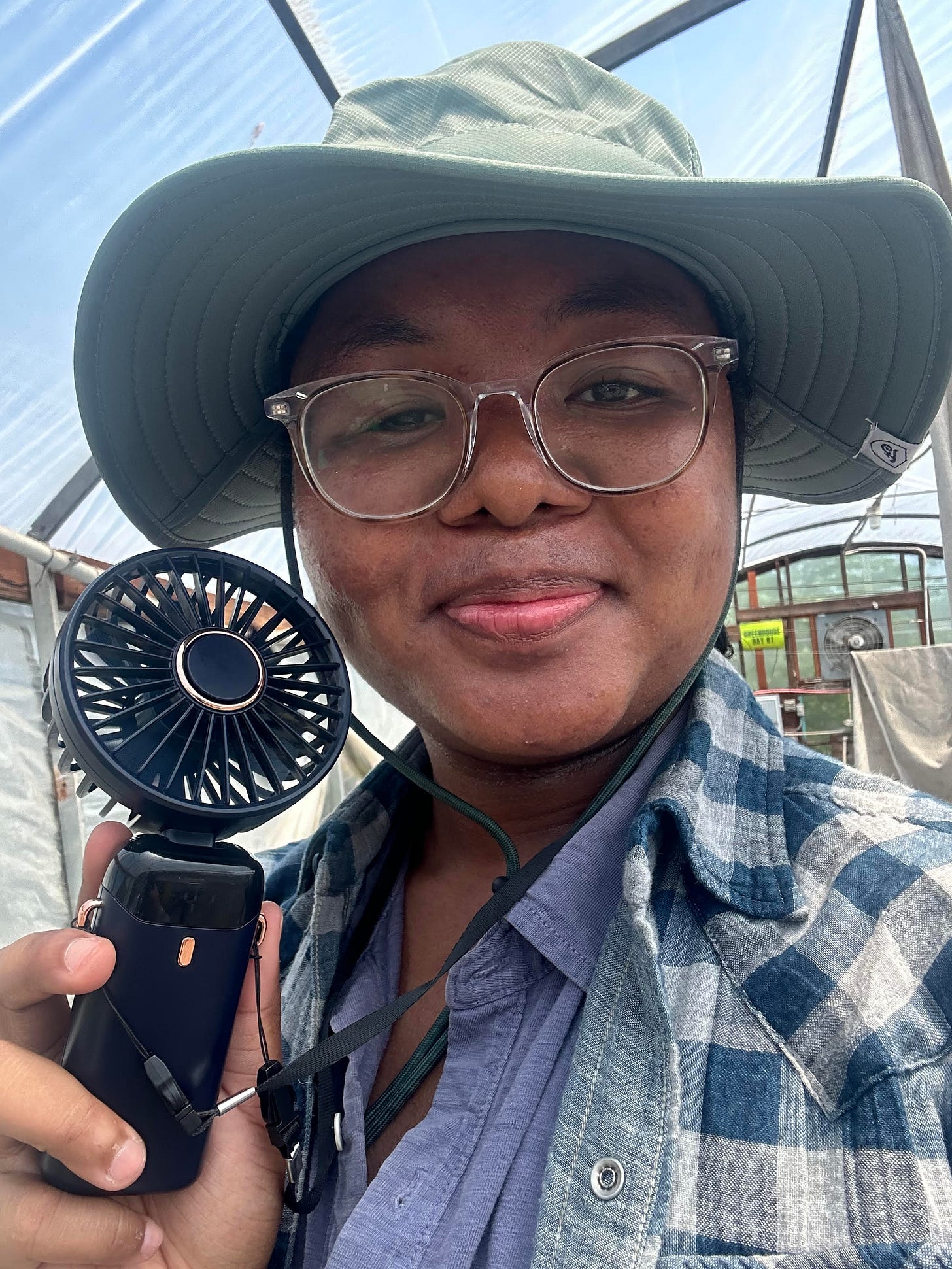Three Months of Greenhouse Missives
When I started the greenhouse missive series in March, my main desire was to share writing consistently throughout the spring. Because of personal tendencies and the conditions of my work, I tend to operate in intense bursts of activity. Although I’m always writing in some form—in the margins of the books I’m reading, in my Notes app, in the catch-all notebook I carry around with me—writing consistently for public consumption sometimes feels like a seasonal practice. I wanted to know if I could do things differently, and in the process cultivate a form of discipline that felt additive to my life. I wanted to make something that could help me connect with others and document the long, hot spring days spent nurturing seedlings in the greenhouse. As we ease into July, the spring nursery season has come to an end. I’m looking back on three months of writing to you about plants and oceans, West Philly rabbit sightings and the politics of memorials and seedling sales and so much more. I’m grateful to everyone who has read these reflections, and I’m so glad to hear from many of you that they felt useful or thought-provoking in some way.
Writing the greenhouse missives helped me feel anchored during a tumultuous season. As with all projects that are living and growing, this one was both a failure and a success. Knowing there was a letter to write each week (or roughly each 7-12 days if we’re being honest) challenged me to try and understand the arc of my days, to name my emotions with more specificity, and to organize my thoughts into some form worth sharing. Committing to public documentation also helped me notice more. In my desire to tell you about the small moments that make up a season, I was called to be more alive to the textures of the everyday. In describing the ways people helped me grow and share plants, I cultivated more gratitude for the friendship and love that has sustained me.
At the same time, giving myself a weekly deadline highlighted longstanding habits around perfectionism and procrastination. Sometimes, I took notes and saved photos throughout the week and was able to easily write a missive after 7-12 days had passed. At other times, I anxiously delayed writing, feeling overwhelmed by my schedule or unsure about my ideas or just tired and unable. I’m aware that there’s an organic rhythm and beauty to seasonality, and although producing a lot of public writing throughout the spring season was gratifying, it also meant I was giving myself more work. Discipline is sexy. Sleep is necessary. This project emphasized questions that I continue to struggle with, some that I may never fully have the answers to. How can I bring creative discipline into my life in a way that feels generative and playful, rather than punishing? How do I embrace my desire to connect with people through my work without succumbing to myths about worthiness and exceptionalism? If pushing myself leads me to make things I’m proud of, does that mean it was worth it? These questions become even more magnified in the context of a capitalist attention economy that (sometimes) rewards constant output and self-promotion (although being compensated at all for one’s work is never guaranteed).
I don’t have the answers, but I’m glad you were here with me as I cried in the rain and noticed henbit flowers in the field and navigated loss and got another eye surgery and figured out how to work outdoors in a changing and post-accident body. I know that I’m never writing alone, but it feels good to be tangibly reminded of that fact. I hope to do this again, in future seasons, in a way that makes sense for a different moment in time. Thank you <3

Some Thoughts on Labor
While doing research for an essay, I recently learned that farmworkers in the U.S. are exempt from most federal labor protections. Much of today’s federal labor legislation was written in the 1930s, by politicians who sought to advance Southern, white agricultural interests. With an eye towards furthering the exploitation of Black workers, politicians excluded farmworkers from most rights outlined in the Fair and Labor Standards Act and the National Labor Relations Act. In most states, farmworkers cannot unionize or receive overtime pay. This made me think about how agricultural labor conditions still exist within the long afterlives of slavery, and how this has created very specific exceptions for farm workers.
I’m thinking about labor legislation and farm work in conversation with the book Black Reconstruction in America by W.E.B DuBois. I read this book earlier in the year as part of a reading group with the Philly-based DuBois Movement School for Abolition and Reconstruction. In Black Reconstruction, DuBois makes an important intervention in both Marxist thought and Black studies, by naming enslaved people as unwaged workers within the context of U.S. labor history. DuBois discusses how the creation of this class of unwaged workers helped form the conditions for labor exploitation in Northern cities, as well as the economic oppression of poor white people in the South. While white Northern workers started race riots because they believed that Black workers were undercutting them, they failed to recognize that the system of slavery was driving down wages for them all.
As DuBois writes, “slave labor in conjunction and competition with free labor tended to reduce all labor towards slavery” [emphasis mine]. DuBois’s framing also recasts enslaved resistance and abolition itself as a labor movement. For example, he describes slave revolts as general strikes. Reading this was extremely clarifying to me, because DuBois situates slavery as a capitalist labor system while still attending to the specificities of Blackness and European race-making. I’ve been considering how this might relate to the struggles and organizing of farm workers today, many of whom are Mexican immigrants. Specifically, I want to keep thinking about the patterns of how agricultural laboring underclasses are created, and how the spectre of slavery continues to haunt labor laws, labor organizing, and land-based work of all kinds in the United States.
Links
Follow and support the striking municipal workers of Philly in their demands for livable wages and working conditions:
This week’s songs: “飛” by Faye Wong; AHYA SIMONE_ENOUGH_NO BPM by Ahya Simone and Kelela; Siren’s Call by Ahya Simone








i recommend reading walter rodney’s how europe underdeveloped africa, he further contextualizes why slavery as a mode of production was outgrown by the needs of capitalism (also of course, enslaved people were resisting more and more), and its relationship to land/resources. thank you for writing!
omg i’d love to go to the black farmer’s market 🥺🥺🥺